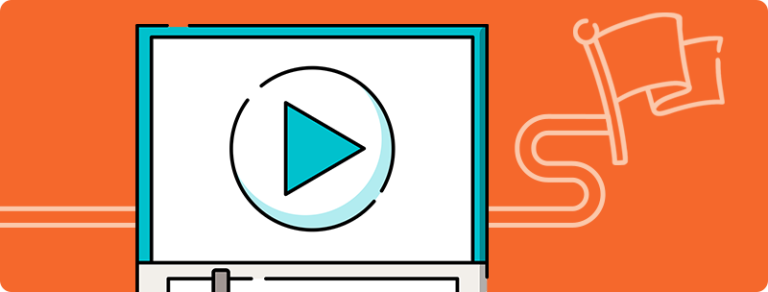How to improve pharmaceutical training and education with video

The need to impart new knowledge, update existing knowledge, and ensure that all employees are familiar with the latest developments and regulatory requirements has underscored the importance of pharmaceutical training.
From the need to communicate complex scientific concepts to complying with stringent regulatory requirements, we explore the unique characteristics of the industry that make education and training a complex task.
In this context, explainer videos play a crucial role. They provide a highly effective way to communicate complex scientific concepts, ensure compliance with strict regulatory requirements, and keep the entire team up to date with developments and requirements. With explainer videos in their toolbox, pharmaceutical companies can increase the efficiency of their training programs and ensure that patient safety and well-being are always at the forefront.

1. Challenges of education and training in the pharmaceutical industry (and how explainer videos can help).
1.1. Complex scientific concepts
- Multidisciplinary teams: In the pharmaceutical industry, multidisciplinary teams of scientists, chemists, biologists, and other professionals often work together. Training must ensure all team members understand each other’s fundamentals to work together effectively.
- Understandable communication:
All employees must speak the same language to foster collaboration and problem-solving. Training materials must understandably explain scientific concepts without compromising scientific accuracy. - Updating scientific knowledge: The pharmaceutical industry is constantly evolving, and new knowledge is constantly being gained. Training programs must ensure that employees have access to the latest scientific information and can update their knowledge and skills accordingly.
Communicating these complex scientific concepts is one of the biggest challenges for pharmaceutical training. Overcoming these challenges requires training approaches that can convey complex scientific concepts understandably and engagingly. Explainer videos offer the ability to explain these concepts visually and understandably, which can significantly increase training effectiveness.
1.2. Regulatory compliance and ethical responsibility
- Safety and quality: The pharmaceutical industry is primarily concerned with the safety and quality of drugs and medical products. Employees must understand and comply with the strict regulations governing these products’ manufacture, testing, and distribution. This requires thorough training to avoid product defects, quality issues, or ethical violations.
- Clinical trials and patient protection: Clinical trials are a central component of pharmaceutical research. Employees must understand the ethical principles and regulatory requirements for clinical trials, particularly concerning patient protection and the proper conduct of trials.
- Data protection and intellectual property: In the pharmaceutical industry, sensitive information and intellectual property are paramount. Training must ensure employees understand and respect data privacy and intellectual property protection to avoid data leaks or legal issues.
Explainer videos can communicate complex regulatory requirements and ethical responsibilities understandably. Through visuals and clear explanations, employees can better understand what actions must be taken to ensure compliance with regulations and ethical standards.
1.3. Diverse target groups in the pharmaceutical industry
- Research and development (R&D): R&D employees need thorough training in scientific methods, laboratory techniques, and the latest findings in medical research. Training must prepare them to develop new drugs, conduct clinical trials, and comply with regulatory requirements.
- Sales and marketing:
- Sales and marketing teams must have a deep understanding of the company’s products and be able to present them convincingly. Training should support them in product knowledge, market trends, and sales strategies.
- Quality assurance and regulation:
- Employees responsible for compliance with quality standards and regulatory requirements must always be current. Training should familiarize them with the latest regulations and testing procedures.
- Clinical trials:
- In the pharmaceutical industry, clinical trials are of critical importance. Employees involved in the planning and executing studies require special training in protocol design, patient recruitment, and data analysis.
- Production and logistics:
- The production and delivery of medicines require precise training in production processes, quality control, and logistics management.
Developing customized training programs for these target groups requires time and resources. The challenge is to create comprehensive and targeted pharmaceutical training content to meet each employee's specific needs and responsibilities. Explainer videos offer an efficient solution in this context, as they can convey complex information in an easy-to-understand manner and easily adapt to different target groups.
1.4. International presence in pharmaceutical training
The use of explainer videos in pharmaceutical training can help overcome these challenges. Explainer videos are flexible in presenting content in different languages and cultures. They can be easily localized and adapted to meet the needs of other target markets.
1.5. Time and cost pressure in pharmaceutical training
Explainer videos in pharmaceutical training can offer considerable advantages in this context. Explainer videos make it possible to convey complex information in an understandable way in a short time. They are cost-effective to produce and can be efficiently created for a broad target group. This enables pharmaceutical companies to achieve their training objectives without compromising productivity or burdening excessive training budgets.

Best Practices for Effective Explainer Videos in Pharmaceutical Training
1. Target group definition: Before the production starts, it is crucial to identify the target group. Who will watch the video, and what should viewers have learned by the end of the video? The video should be tailored to the target audience’s needs, prior knowledge, and expectations.
2. Formulation of the learning objective: the video should convey a clear and specific message. What exactly should be explained, and why is this knowledge important? A clearly formulated learning objective ensures that the video provides the desired added value for the viewers and answers their questions.
3. Storyline development: The storyline is the backbone of the video. It defines how the message is conveyed. A well-designed storyline should be logically structured and excitingly told. It should captivate viewers and encourage them to think about their learning. This can be achieved through a clear dramaturgy and targeted elements of suspense.
4. Selection of visualization: The visual design of the video is crucial. Images, icons, animations, and text should be chosen to support and reinforce what is being said. An appealing design and a coherent visual aesthetic ensure viewers are visually engaged and absorb the information better.
5. Creating the voice-over: the choice of voice and the quality of the voice-over are essential to engage the audience. The voice should be pleasant and professional, and speak clearly and with emphasis. It should match the style of the video and convey the desired emotions, be it friendliness, seriousness, or enthusiasm. The fitting voice can elevate the video to a human level and create a strong connection with the target audience.

Create explainer videos with simpleshow video maker
Want to integrate videos into your training sessions? Try out today how easy and fast you can create professional explanatory videos for all training purposes with simpleshow video maker!

